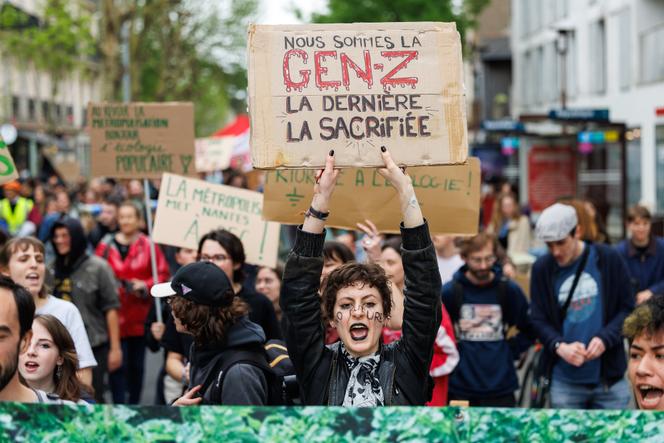


The poll was a strong reflection of the state of scientific despair. The Guardian surveyed 380 authors from the Intergovernmental Panel on Climate Change (IPCC) on humanity's ability to curb climate change. According to the results of the study published on May 8, almost 80% of them anticipate global warming of at least 2.5°C by the end of the century, well above the least ambitious threshold of the Paris climate agreement (+2°C). Nearly half are projecting +3°C, which is the current warming trajectory.
It is a significant sign of scientists' mistrust of governments' ability to curb climate change. And now, with less than 20 days to go until the European elections on June 6-9, climate issues, and more broadly the environment, are relegated to the periphery in the French electoral campaign.
The issue has been overtaken by topics that seem more urgent, instrumentalized by a section of the political spectrum that sets it up as a symbol of so-called Brussels "diktats" and made invisible by leaders anxious not to offend public opinion. The global challenge appears only in the background, as French climatologists look on in disillusion. "Sometimes we think we're not pulling our weight," said paleoclimatologist Jean Jouzel. "Our compatriots know that the climate is changing, but we're not moving to the action stage, as if this fight were still a long-term challenge. But the CO2 we're now accumulating in the atmosphere will have consequences for the climate now and in 2050."
This is a radical change of mood compared to the 2019 European elections. Spurred on by climate marches, politicians had put environmental concerns at the heart of that year's campaign. The new European Commission president, Ursula von der Leyen, pushed an ambitious Fit for 55 agenda, which calls for a 55% reduction in greenhouse gas emissions by 2030.
But since 2022, the consequences of the war in Ukraine, inflation, the return of the debt issue and the agricultural crisis have gradually frozen initiatives and proposals. Yet the June 9 elections are crucial. Following the vote on numerous bills within the framework of the European Green Deal, the next legislature (from 2024 to 2029) will have to implement and amplify this ambition.
How can the transition be financed while supporting businesses and citizens? How can the world move toward cutting greenhouse gas emissions by 55% while preparing for the next stage, the decade 2030-2040, when structural sufficiency and behavioral changes will become essential if we hope to achieve carbon neutrality in 2050?
You have 79.6% of this article left to read. The rest is for subscribers only.
